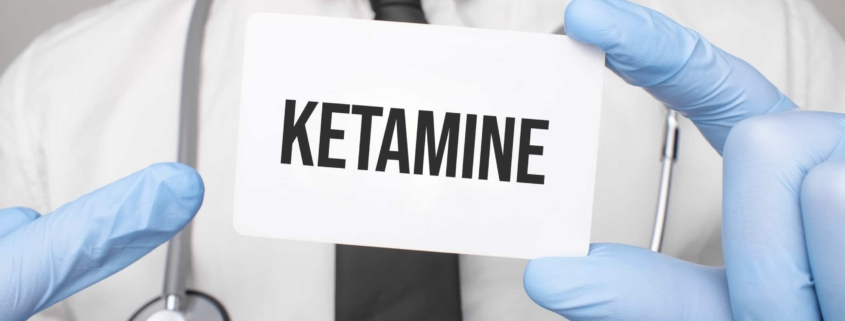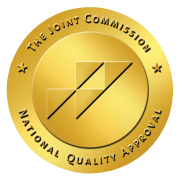What Is Ketamine Infusion Therapy?
Ketamine, also known on the street as “Special K,” has been abused in the past as a recreational drug due to its hallucinogenic and tranquilizing effects. However, today it is receiving a lot of positive attention due to it being used “off-label” to treat treatment-resistant depression. (When a drug is “off-label” it’s being used to treat a condition in a way that doesn’t have FDA approval.)
Ketamine infusion therapy involves the administration of a single infusion or a series of ketamine injections. This may help with the management of psychiatric disorders such as:
- Major depressive disorder (MDD)
- Post-traumatic stress disorder (PTSD)
- Acute suicidality
- Obsessive-compulsive disorder (OCD)
- Bipolar disorder
How Does Ketamine Work To Fight Depression?
The way ketamine works are not completely clear yet because it exerts an antidepressant effect in a new way. It might be able to help people manage their depression successfully when other treatments haven’t worked. It is likely that ketamine targets the NMDA receptors in the brain and binds to them.
By doing this, it sets off a chain of reactions that leads to the release of molecules that help neurons (brain cells) communicate with each other along new pathways. This process is known as synaptogenesis and likely affects the individuals:
- Mood
- Thought patterns
- Cognition (the process of thinking and understanding)
Ketamine may also influence depression in other ways. It may reduce signals involved in inflammation which has been connected to mood disorders. Similarly, it may also facilitate communication in certain areas of the brain. It is very likely that ketamine works in several ways at the same time and is still being studied.
Why Is Ketamine So Significant For Treating Depression?
The significance of ketamine as a treatment for depression is that it can:
- rapidly reduce suicidality (life-threatening thoughts and behaviors),
- relieve other serious symptoms of depression, and
- can be effective in treating depression combined with anxiety.
Other treatments for depression and suicidal thoughts typically take weeks or even months to take effect. Also, some people need to try several different approaches and medications to find relief. This is the case for talk therapies, antidepressant medications, TMS (transcranial magnetic stimulation), and ECT (electroconvulsive therapy). ECT is currently the most effective treatment for major depression that doesn’t respond to other therapies.
Two Types Of Ketamine
There are two main types of ketamine. They are both used to treat major depression that hasn’t responded to two or more treatments (treatment-resistant depression). They are:
- Racemic ketamine: usually given as an infusion, or IV, into the bloodstream. Approved by the FDA decades ago as an anesthetic, it is used off-label for depression.
- Esketamine: approved by the FDA, it is given as a nasal spray.
The two forms interact differently with the receptors in the brain. The way the drug is given and the type will determine the drug’s effectiveness and side effects. So far, most research has been on ketamine infusions.
Ketamine Infusion Side Effects
All drugs have side effects. However, when someone is suicidal or severely depressed, possible benefits may outweigh possible side effects. Given by infusion, ketamine may cause:
- High blood pressure
- Nausea and vomiting
- Disturbances in perception (colors, textures, and noises that seem excessively stimulating, blurry vision, time seems to speed up or slow down)
- Dissociation (out-of-body experience)
Generally speaking, any changes in perception or dissociation are most evident during the first ketamine injection and end very soon afterward. The nasal spray form may cause the same side effects, but the timing and intensity of those effects are different.
Main Drawbacks
Some medical professionals are advising caution until the long-term effects are studied more thoroughly. These are some of the major drawbacks to ketamine therapy:
- The beneficial effects of the drug wear off after 7 to 10 days so patients need to get infusions on a regular basis.
- Some studies have shown that it can be toxic to brain cells.
- It may cause bladder damage at higher doses.
- It could cause psychotic-like symptoms during treatment.
Still, it should be noted, ketamine can help some people with depression and is especially beneficial for patients who require immediate improvement and have failed with conventional FDA-approved treatments. Research is ongoing on ketamine’s long-term safety and the best doses.
Help For Veterans
Ketamine may provide relief from the post-traumatic stress disorder (PTSD) that many veterans endure. PTSD is a mental health problem that many people develop after experiencing a trauma, such as combat. According to Aimee Cabo Nikolov, BSN who runs the Ketamine Medical Clinic in Miami (a division of the Neurosciences Medical Clinic), ketamine may be the most important discovery in half a century. About 35% of their clinic are military veterans who need treatment for PTSD and ketamine is giving them hope that other kinds of treatment didn’t provide.
Pain Management
Besides being included in the treatment of psychiatric disorders such as MDD and PTSD, it is also being used for post-operative and chronic pain management. Intravenous (IV) ketamine infusion therapy has developed as a treatment for several conditions.
What Is Ketamine And Where Did It Come From?
Ketamine started being used in Belgium in the 1960s as anesthesia for animals. It was approved by the FDA as an anesthetic for people in 1970. Thereafter, it was used in treating injured soldiers in Vietnam because, unlike other anesthetics, ketamine doesn’t slow breathing or heart rate. This means that patients don’t need a ventilator to receive it.
Today ketamine is gaining ground as a treatment for major depression which is the leading cause of disability worldwide. Recent estimates in the U.S. show 16 million adults had an episode of major depression in a year. In addition, suicide rates rose significantly between 1999 and 2016 increasing by over 30% in 25 states. Due to its rapid action, ketamine could play a part in preventing suicide.
Do You Have Any Mental Health Questions?
If you are experiencing issues with or have concerns about your mental health don’t wait to get help. Located in Newport Beach, CA, the Lido Wellness Center is available to help you manage and understand your mental and emotional health problems. We offer multiple levels of care so you can receive the treatment that is truly right for you. Contact us today. If you think you have a problem, you need to talk about it.
References:
www.health.harvard.edu/blog/ketamine-for-major-
www.ivketamine.com/iv-ketamine/
www.psycom.net/ketamine-depression
www.psychiatry.uams.edu/clinical-care/in




